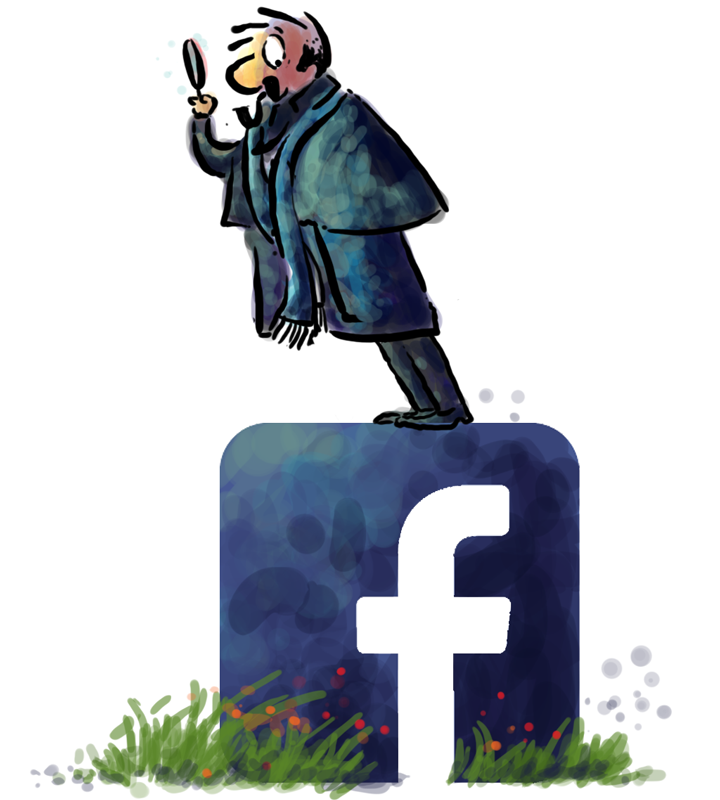
If you're going to start a podcast, there's a pretty good chance you've been stumped with the issue of research. It's quite one thing if you're conducting a podcast interview based on the interviewee's book or course, but what if the research involves something about their life?
I thought I had a great idea by heading off to the library
And yet I was headed right into a dead-end. My so-called brilliant idea was to watch two or three videos where the interviewee had appeared. Then, just for good measure I was going to listen to several podcasts where they'd been a guest.
Yet, all that preparation was of little help. For one, there was no way to know whether the interview would give me any information that was interesting or remotely juicy. Since interviews on both podcasts and videos are linear, there was no way to know how I'd get information about the interviewee's life.
The answer came to me the moment I was on Facebook
You're getting the drift, aren't you? Trying to dig up information on someone requires a detective license—except on Facebook. If you were to wander across to Facebook, you'd find that I just deleted 26,000 files from my computer (200 by mistake).
You'd also find the trips we've done to Sardinia, Goa, Japan, France and other trips on our annual three-month vacation. You'd know that I'm pretty crazy about cooking, about fountain pens (and my favourite is the orange Nakaya). You'd figure out I'm completely besotted with my nieces and live in Auckland, New Zealand.
Not everyone shares their lives on Facebook like me, do they?
You'll be surprised. It doesn't take twenty updates a day to know what a person is up to. A recent interview led me to find out a whole range of things the interviewee was interested in. His favourite sport, the food he liked, the achievements, the books he was reading.
More pertinently, I got talking to him about his charity and his kids. The fact that I knew about the charity and went into detail about it stopped him in his tracks. He was so glad I brought it up and thanked me for doing so.
Here's what I'm saying about researching the podcast quest
Your interview may not be about the person themselves. My interview was delving into their lives and the things that made them who they are. Even so, it's a great idea to warm up the client with a little conversation about the things that are important to them.
Within the podcast interview, I'd also recommend you veer away from the main topic into a personal discussion. It brings out the personality and the drive of the person you're interviewing.
However, the biggest reason for the research is to avoid asking your guest “dumb” questions
You wouldn't ask your best friend: So what are you doing in the future? What projects are coming up? Instead you'd know. Your question would be more pertinent, more precise. You'd say something like: “What's happening on the “XYZ” project? And your friend would then go down the track of “what's happening in the future” on that particular project.
If the interviewee is no longer keen on that project, they'll swing towards a more pressing or interesting project all by themselves. And they'll do it, because like a a friend, they'll know that you know what's happening in their world.
Smart people know you've done your research
They know you've been stalking them on Facebook and Twitter. They know you've been to their website. Yet, they appreciate you doing that little bit of extra work. They recognise that you're a professional, and it's likely they'll mention it during the interview as well.
People who are being interviewed frequently often do hundreds of interviews in a year. They get the same unpreparedness from almost every interviewee.
Which is a shame, because it's not really that hard to prepare
It does take about about an hour or two of your time to dig into the book (if your interview is about a book). It will take about 30-45 minutes (in all) to learn more about the interviewee.
And yet, it's what you need to do. They've just sacrificed a chunky hour or more in their very busy day and the least you can do is show some level of respect.
Do your homework. It's not that hard. You're on Facebook, Instagram and Twitter anyway. Might as well make your time productive.
Next Step: One of the biggest reasons why we struggle with our podcast is because we run into resistance.
There are hidden forces causing us all to resist doing the research. We know we can find more information about our podcast guests on Facebook. But we go to Facebook and waste time reading about everything else. This slows us down considerably. Is there a way to work with resistance? Find out how to work with resistance, instead of fighting it all the time. Click here to get the free report on ‘How To Win The Resistance Game’.

Leave a Reply